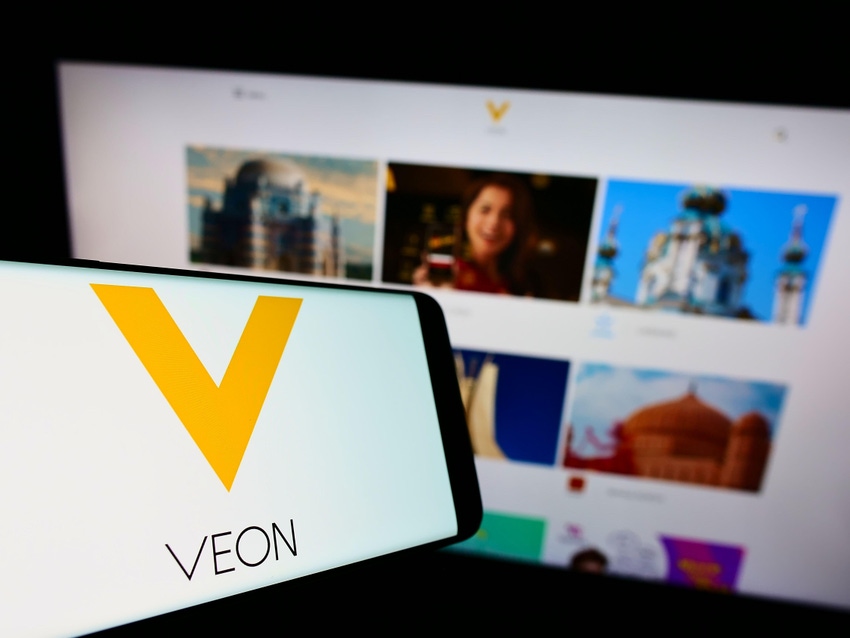VEON plans to bring generative AI to its customers – CEO
VEON CEO Kaan Terzioğlu sees generative AI as a big opportunity for the telco group, which is already active in developing local language models and planning to include them in its tariffs.

VEON CEO Kaan Terzioğlu may have more reason to be excited about generative AI than his peers in English-speaking countries. "It is up to […] companies in emerging markets to embrace this because none of the Big Tech companies will care about Urdu, Bengali, Kazakh, Uzbek, Kyrgyz," he said. "These languages are not for them."
Headquartered in Amsterdam, and with operations spanning several emerging markets, VEON has already built up portfolios of digital services covering entertainment, healthcare, education and fintech in the six emerging markets where its subsidiaries are active. Speaking to Light Reading at MWC 2024, Terzioğlu, also a GSMA board member, said he now plans to incorporate generative AI into everything VEON does.
He is enthusiastic about the opportunities and reckons VEON's approach differs from that of most operators, which are thinking about generative AI predominantly in terms of saving money. "Our priority is going to be about making money," he said, adding "of course, shame on us if we don't use [generative AI] for customer service. We will do it but it's not a competitive advantage. What we will do, we will make this part of our tariffs so that our customers will get the benefit."
VEON's strategy is to focus on small language models built for a specific country, industry and language. "It's about, in local languages, how do we make a teacher in Dakar the best teacher in the world? How do we make a doctor in Karachi the best doctor in the world? How do we make a small business get better?"
He argues that this way, "we can create the most powerful value proposition in the world as telecom operators, we can offer our customers a better version of themselves."
'Big waste of a fantastic technology'
This is in line with VEON's Digital Operator strategy, which focuses on offering customers a range of digital services spanning adjacent sectors like fintech, education, healthcare and entertainment.
"We're not going to be a healthcare business in the traditional sense, you will not see us having brick and mortar hospitals, but you will see us providing the services that are making those doctors more efficient, hospitals run better," he said.
To do this, Terzioğlu says the company needs to invest in new areas like IT capabilities and software development. He underlines the group's focus on recruiting people skilled in those areas, pointing to the example of QazCode, a software development firm launched by Beeline Kazakhstan.
"So when you will see our next generation of applications and next generation of tariffs, you're going to see tariffs for very specific types of communities, people, individuals, businesses, and you will see AI in everything we do," he said.
"If we save money with generative AI but still sell a number of minutes, a number of SMSs, a number of gigabytes, that's a big waste of a fantastic technology," he argued. Instead, the company has adopted what it calls the 1440 strategy, which consists of building an AI service consumers can use for every single minute in a day.
Asked about the monetization potential of generative AI, Terzioğlu said an operator could make two offers to a client, with one focusing strictly on data, text messages and minutes. Another one may involve generative AI technology for the client's profession, in their native language. "Which offering would you prefer? One will be for $1 the other one will be at $3.5."
Augmented intelligence
Terzioğlu thinks mobile operators are ideally placed in such markets because they hold large amounts of data in local languages. In fact, VEON has already taken steps in this direction. Its subsidiary Beeline Kazakhstan used a Google core neural network to develop a Kazakh-language generative AI model Kaz-RoBERTA-conversational, or BeeBERT, which has been released to software developers for free.
The partnership with Google, however, shows the company isn't seeking to make foundational models from scratch. "Of course we're going to partner with one of, or two of, or many of these established vendors. I mean, we have relations with Microsoft, Google, Amazon, with Meta and we will of course use their capabilities to our advantage but none of them will be having the data to train their models in local language in those countries," he said.
He seems to take a more philosophical approach to the technology than some in the industry. "There is really nothing artificial about AI because this is what we have created as human beings with the goodness in us and the badness in us. And I think the reason we are afraid [is that] we know ourselves how bad we can be," he says.
"And that's why there is this fear around generative AI because it is actually resembling human beings. I think we need to pass that and we need to start thinking about how to apply this to specific cases. And that's what I call the augmented intelligence," he adds.
'4G for all'
Terzioğlu sums up the approach as "AI for all and nobody should be left behind," which he points out is the opposite of his approach to 5G, which has been "4G for all, not 5G for few."
He doubts customers care which 'G' – or even which type of broadband – they are using at any given time, as long as the speed is satisfactory. In its latest iteration of "4.9G," 5G's predecessor is "more than capable of delivering the right levels of speed," he said.
Terzioğlu points out that capabilities like massive MIMO, virtualization of the core and network slicing are possible in 4G. "When it becomes 5G, when government sells some spectrum, and you pay for the spectrum, then you can call it 5G."
He is, however, adamant that there is a better alternative to the current focus on technology cycles. "I believe in continuous development and adaptation of the networks," he said. In his view, open RAN is the technology for this. VEON already has an agreement with Rakuten Symphony to deploy open RAN, which will first focus on a small-scale rollout in Ukraine.
Terzioğlu adds that Veon will use whatever technology is needed, including satellite systems for backhaul in rural areas and emergency support.
His skepticism toward 5G extends to 6G as well: "I hope, by the way, there will be no 6G standards, because that will be another mistake repeated with 5G." While European operators seem increasingly unwilling to commit to a big 6G equipment splurge, it is rare for someone to entirely dismiss the process.
"When we cannot agree on a common standard, maybe there should be none, right? And we just deploy our technologies focusing on the good quality of service we provide to customers," he says.
Industry fragmentation
Nevertheless, he perceives fragmentation within the GSMA as the biggest risk the industry is currently facing. He would be "very sad to see that these negative connotations these days they give to the word 'global' actually become destructive to what we have achieved with GSMA. I would hate to see a world with two standards, West and East, not talking to each other," he said.
"Today, when I hear about things like post-quantum cryptography risks, it makes me feel like, you know, how do we avoid having two standards or three standards in this world?" he said. Cybersecurity poses another big risk, he said, pointing to last year's attack on Kyivstar's infrastructure.
Terzioğlu is also very critical of the concept of net neutrality, saying customers do not care about gigabytes but want to access the digital services they need. "So if we are not allowed to act on the preferences of our customers, who are we? Then we are nobody, then we are just there to sell gigabytes and SMSs and, you know, number of minutes and of course then we will be dumb pipes."
That's contrary to Veon's strategy of offering digital services in adjacent sectors, he says. "Of course, we have to be able to integrate these to our networks so that we can be more relevant to them, more secure, and more convenient."
"I'm very happy that in the markets that we operate in, the net neutrality disease has not really come into play. But in Europe, it has destroyed the markets," he said.
About the Author(s)
You May Also Like




_International_Software_Products.jpeg?width=300&auto=webp&quality=80&disable=upscale)







